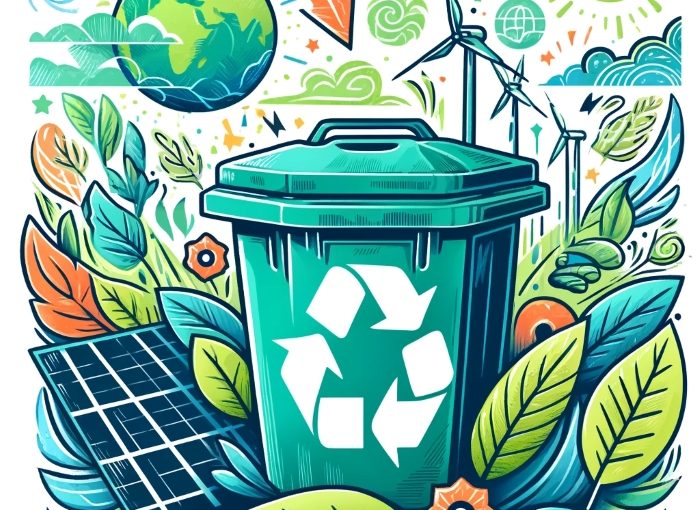Are you passionate about making a difference and leaving a positive mark on the world? Then, diving into social impact activities at Lawrence might be just the thing for you! Getting involved now could lead to a career in social impact later. Let’s chat about what social impact is and how you can get involved in various causes, from gender rights to civil rights and beyond.
What is Social Impact?
Social impact refers to efforts aimed at improving societal well-being and driving positive change. It involves addressing pressing social issues and advocating for a more just and equitable world. Whether it’s through community-based projects or student-focused initiatives, social impact activities empower individuals to contribute to meaningful causes and make a difference in their communities.
Getting Involved on Campus
1. Join or Start a Student Organization in Support of:
- Gender Rights: Advocate for gender equality, host discussions on women’s rights, and organize events for International Women’s Day.
- LGBTQIA+ and Trans Rights: Support and empower LGBTQIA+ and trans students, organize Pride Week, and provide educational workshops on LGBTQIA+ issues.
- Civil Rights: Promote civil rights education, organize marches and rallies, and collaborate with local civil rights organizations.
- Environmental Justice and Sustainability: Focus on issues like climate change, pollution, and sustainability. Organize campus clean-ups, tree-planting events, and awareness campaigns.
- Mental Health Awareness: Provide support and resources for mental health, host stress-relief activities, and collaborate with campus counseling services.
- Racial Equity: Advocate for racial justice, host diversity and inclusion workshops, and support anti-racism initiatives on campus.
- Disability Advocacy: Promote accessibility and inclusion for students with disabilities, organize awareness events, and work with administration to improve campus facilities.
- Human Rights: Focus on a broad range of human rights issues, such as refugee rights, freedom of speech, and international human rights violations. Host educational events and support global causes.
- Economic Justice: Address issues related to economic inequality, such as affordable housing, living wages, and food security. Organize fundraisers and volunteer at local shelters and food banks.
- Sexual Assault Awareness: Raise awareness about sexual assault and harassment, provide support for survivors, and work to create a safer campus environment through education and advocacy.
2. Participate in Community-Based Projects:
- Volunteer at Local Shelters: Help out at women’s shelters, LGBTQIA+ safe houses, local food banks, or homeless shelters to support vulnerable populations.
- Community Clean-Up Drives: Organize or join clean-up efforts in local parks and neighborhoods to promote environmental sustainability.
- Tutoring and Mentoring Programs: Provide academic support and mentorship to underprivileged students in your community.
3. Engage in Activism and Advocacy:
- Petitions and Campaigns: Start or support petitions addressing social justice issues, such as police reform or environmental protection.
- Peaceful Protests and Rallies: Participate in or organize peaceful protests to raise awareness about important social issues.
- Policy Advocacy: Work with local government officials or advocacy groups to influence policy changes that promote social justice.
4. Attend Workshops and Seminars:
- Educational Workshops: Attend workshops on topics like intersectionality, implicit bias, and allyship to deepen your understanding of social justice issues.
- Guest Speaker Events: Listen to guest speakers who are activists, scholars, and leaders in various social justice movements.
- Skill-Building Seminars: Participate in seminars that teach skills like community organizing, public speaking, and effective advocacy.
5. Collaborate with Campus Departments:
- Diversity and Inclusion Office: Partner with your college’s diversity office to develop programs and initiatives that promote inclusivity and equity on campus.
- Service-Learning Courses: Enroll in courses that incorporate community service and social impact projects into the curriculum.
- Research Opportunities: Collaborate with faculty on research projects that focus on social justice issues and contribute to scholarly work in the field.
Examples of Social Issues to Get Involved In
1. Gender Rights:
- Issues to Address: Gender pay gap, reproductive rights, gender-based violence.
- Activities: Host panel discussions, create awareness campaigns, support women’s rights organizations.
2. LGBTQIA+ and Trans Rights:
- Issues to Address: Discrimination, mental health support, legal protections.
- Activities: Organize Pride events, provide safe spaces on campus, advocate for inclusive policies.
3. Civil Rights:
- Issues to Address: Racial discrimination, voting rights, criminal justice reform.
- Activities: Hold voter registration drives, participate in civil rights marches, collaborate with civil rights organizations.
4. Environmental Justice:
- Issues to Address: Climate change, pollution, sustainability.
- Activities: Conduct environmental awareness campaigns, organize tree-planting events, advocate for green policies.
5. Mental Health Awareness:
- Issues to Address: Stigma, access to mental health services, student well-being.
- Activities: Create mental health support groups, host stress-relief events, partner with counseling services.
Final Thoughts
Getting involved in social impact activities on campus is a fantastic way to make a positive difference, learn new skills, and connect with like-minded peers. Whether you’re passionate about gender rights, LGBTQIA+ and trans rights, civil rights, or other social issues, there are countless ways to contribute and drive change. Learning about issues, picking up new skills and meeting new people just might help you connect to your first career opportunity.
Generated with the help of Copilot.

